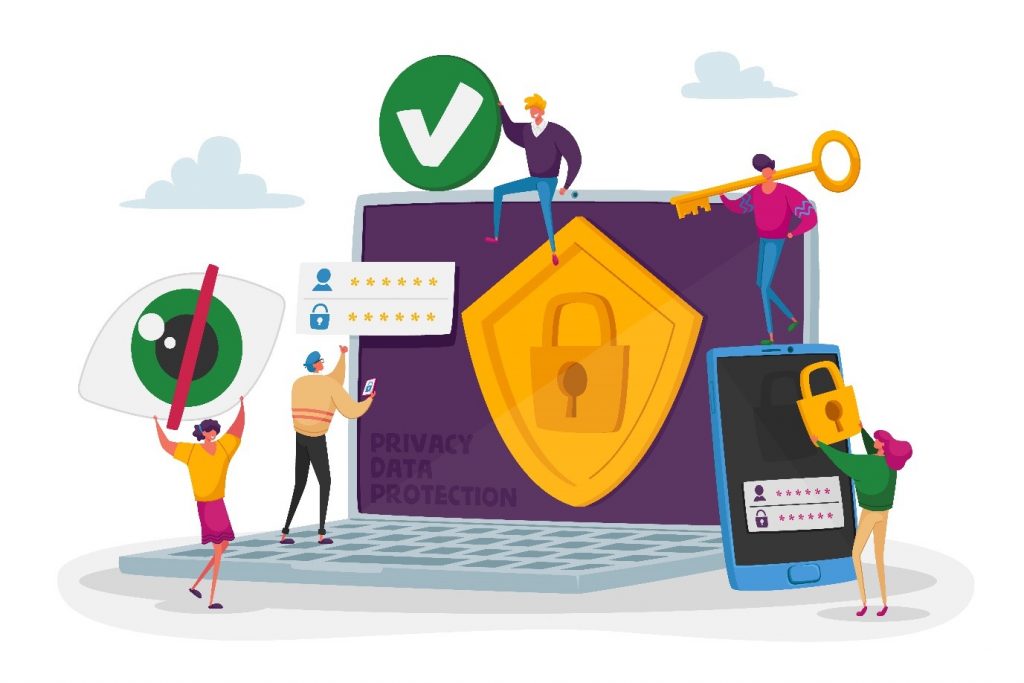In today’s data-driven world, the eminence of data and information has transformed the way we work and the solutions we build. With every new platform that we deploy, we are made more aware of the fact that the way we control and govern our data can make or break our company.
And so, in our recent Office 365 Hours with Microsoft MVP, Regional Director, and Microsoft Go-To-Market for Director Christian Buckley, we invited Microsoft Senior Product Marketing Manager for Records Management and Information Governance Erica Toelle to go over the key things you need to know about information governance and why it’s important to have data policies and regulations set in place for every organization.
To receive an alert for the next Office 365 Hours session sign up here! For now, though, read on to get a recap of Christian and Erica’s insightful discourse from the webinar.
Information Governance and Records Management
Put simply, Information Governance and Records Management basically means ensuring that you are retaining content based on how it should be handled—keeping it when you need it and deleting it when you don’t.
This may sound easy, but if you consider the volume of Microsoft 365 data organizations have to deal with in their environments and how compliant they should be with the tight regulations placed by countries all over the world, things can get messy pretty quickly.
Why Do You Need It?
Years ago, we wouldn’t have thought much about all these policies and regulations. We’d create and recreate documents, pile up files on our folders, and didn’t care about our digital interactions. But as we realized how important data and content are, we started to see data—even our simple 1-1 conversation regarding projects—as an asset to be handled strategically to have a better competitive advantage.
Having control over your company’s data not only means you put effort into making sure that your environment is secure, but also that you are mindful of how you utilize your data as something that can be capitalized for your organization’s success.
Getting Started
There are two possible reasons why you’d want Office 365 governance:
- For general records management
- To comply with strict and specific data regulations
General records keeping mostly involves applying broad policies to your data and content. For example, if you need to retain email messages for three years and then completely delete them after seven years.
Complying with strict and specific regulations, on the other hand, would need a little more complicated management. You’d need to be more specific with your categories of information, how you retain data by applying specific policies, and when you should get rid of it to avoid any liability. Luckily, there are third-party solutions like AvePoint’s 
Governance and Records Management as a Journey
Records management and information governance are not like a checklist that has to be done once and then you’re good. There’s always so much that’s happening, so it’s important to examine if the governance you have is good enough and if it’s meeting your evolving needs.
Setting up governance policies is a process. You don’t just put a policy in place and leave your users to take care of everything else. You have to help them do the right thing, too. To put up an effective governance policy in place, there are three areas you should focus on:
1. The process of entering the system
The way you develop your sites must be structured in a way where your users can easily be compliant. By limiting their options, you can push them to only do things that are relevant for your organization.
2. Active management
When your users have entered your system, you must actively manage your content and information. Business operations will continue to change over time, and so does your data, so you must keep your management processes updated as well.
3. Lifecycle
Are you aware of how long your data should be kept until it is no longer relevant? Are there files sitting in your environment that are not supposed to exist? Managing records is not only looking after your current environment but also determining when data has ceased to be valuable for your organization.
 Automation
Automation
When people usually hear automation, they might think these technologies magically appear and do all the work without human interference. Naturally, that’s not true. Technology will never keep up with our evolving pain points without human intervention.
When we talk about automation, it means we are using technology to help people make the work more manageable. If you want to be proactive in forwarding your IT processes, it’s not going to be effective and efficient to have human personnel manually handle all your data and putting policies and security labels for every document, email, and Microsoft Teams message.
So, what automation does is look at your entire environment, find patterns of information to help you learn how you should protect or handle your data, and then helps you apply the right policies and protection to your content and data in a secure and feasible manner.
What’s Up?
Erica went over what Microsoft has recently done concerning information governance and records management in Office 365:
- When Microsoft Teams meeting recordings were moved to SharePoint and OneDrive, it also gave way to a capability where you can now set a separate retention policy for the recordings
- The addition of retention for Yammer in beta mode, Teams private channels, and new connect channels
She also hinted at what we can look forward to from Microsoft:
- With regards to reporting, Microsoft has realized that information must be available to Power BI and other tools rather than building them pre-canned, so people can make reports that make more sense for their business
- Watch out for the 1st week of May, as Microsoft should be announcing something big regarding information governance and record space. Posts will be on the tech community blog and social media
 Reach Out to Erica
Reach Out to Erica
As we have witnessed in the past years, things are going to evolve in ways we may or may not imagine, and the best way to adapt is to be prepared. It is completely okay to get confused with the new innovations, but what’s not okay is to remain uninformed even with all the resources available.
Microsoft encourages users to reach out through the Microsoft Tech Community, on social media, and on any other platforms and communities where you can talk about your concerns.
Reach out to Erica:
LinkedIn: Erica Toelle
Twitter: @EricaToelle
Microsoft profile: Erica Toelle

